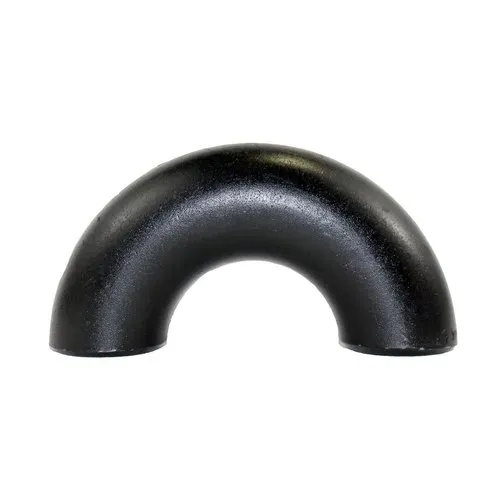-
Cangzhou Yulong Steel Co., Ltd.
-
Phone:
+86 13303177267 -
Email:
admin@ylsteelfittings.com
- English
- Arabic
- Italian
- Spanish
- Portuguese
- German
- kazakh
- Persian
- Greek
- French
- Russian
- Polish
- Thai
- Indonesian
- Vietnamese
- Zulu
- Korean
- Uzbek
- Hindi
- Serbian
- Malay
- Ukrainian
- Gujarati
- Haitian Creole
- hausa
- hawaiian
- Hebrew
- Miao
- Hungarian
- Icelandic
- igbo
- irish
- Japanese
- Javanese
- Kannada
- Khmer
- Rwandese
- Afrikaans
- Albanian
- Amharic
- Armenian
- Azerbaijani
- Basque
- Belarusian
- Bengali
- Bosnian
- Bulgarian
- Catalan
- Cebuano
- China
- China (Taiwan)
- Corsican
- Croatian
- Czech
- Danish
- Esperanto
- Estonian
- Finnish
- Frisian
- Galician
- Georgian
- Kurdish
- Kyrgyz
- Lao
- Latin
- Latvian
- Lithuanian
- Luxembourgish
- Macedonian
- Malgashi
- Malayalam
- Maltese
- Maori
- Marathi
- Mongolian
- Myanmar
- Nepali
- Norwegian
- Norwegian
- Occitan
- Pashto
- Dutch
- Punjabi
- Romanian
- Samoan
- Scottish Gaelic
- Sesotho
- Shona
- Sindhi
- Sinhala
- Slovak
- Slovenian
- Somali
- Sundanese
- Swahili
- Swedish
- Tagalog
- Tajik
- Tamil
- Tatar
- Telugu
- Turkish
- Turkmen
- Urdu
- Uighur
- Welsh
- Bantu
- Yiddish
- Yoruba

Dec . 01, 2024 03:42 Back to list
Exploring the Versatility and Strength of Metal Pipe Applications in Various Industries
The Versatility and Applications of Metal Pipes
Metal pipes play a crucial role in a multitude of industrial and commercial applications. Their durability, strength, and resistance to various environmental factors make them invaluable in different sectors, ranging from construction to manufacturing, plumbing, and beyond. This article delves into the attributes, types, manufacturing processes, and applications of metal pipes, emphasizing their significance in modern infrastructure and technology.
Properties of Metal Pipes
Metal pipes are favored for their exceptional properties. They offer high tensile strength, which allows them to withstand significant pressure and weight. Additionally, metal pipes have excellent resistance to corrosion, particularly when treated or coated with protective layers. This characteristic is vital for pipes used in environments that are exposed to moisture, chemicals, or extreme temperatures. Moreover, metal pipes can handle high temperatures, making them suitable for applications in energy production and processing industries.
Types of Metal Pipes
There are several types of metal pipes, each designed for specific applications
. The most common types include1. Steel Pipes Known for their strength and versatility, steel pipes are widely used in construction and infrastructure projects. They can be further divided into welded and seamless pipes, each with its unique advantages. Welded pipes are made from flat steel plates, while seamless pipes are crafted from solid steel billets, offering greater resistance to pressure and better performance in critical applications.
2. Copper Pipes Traditionally used in plumbing, copper pipes are favored for their excellent thermal conductivity and resistance to corrosion. They are often used for water supply lines, heating systems, and refrigeration applications.
3. Aluminum Pipes Lightweight and resistant to corrosion, aluminum pipes are ideal for applications where weight is a concern. They are often used in aerospace, automotive, and electrical applications due to their favorable strength-to-weight ratio.
4. Stainless Steel Pipes Renowned for their corrosion resistance, stainless steel pipes are used in a variety of environments, including food and beverage processing, pharmaceuticals, and chemical processing. They maintain their integrity even in harsh conditions, making them a preferred choice for hygienic applications.
Manufacturing Processes
metal pipe

The manufacturing of metal pipes involves various methods, depending on the type of metal and the intended use. Common processes include
- Casting This involves pouring molten metal into molds. It is typically used for creating pipes with complex shapes or larger diameters.
- Extrusion In this process, metal is forced through a die to create long sections of pipe. It is commonly used for producing aluminum and copper pipes.
- Welding The welding process joins two or more pieces of metal to form a complete pipe. This is commonly seen in the production of steel pipes.
- Machining In some instances, pipes are manufactured through machining processes, which involve cutting and shaping metal to meet specific dimensions and requirements.
Applications of Metal Pipes
The applications of metal pipes are vast and varied. In construction, they serve as structural supports and frameworks. In plumbing, they are essential for water supply and drainage systems. The oil and gas industry relies heavily on metal pipes for transporting crude oil and natural gas, while power plants use them for steam and cooling systems.
In addition, metal pipes are critical in manufacturing processes, including automotive and aerospace industries, where they are used in the construction of equipment and vehicles. The food and beverage sector employs stainless steel pipes for hygiene and safety in processing and distribution.
Conclusion
In conclusion, metal pipes are indispensable components across numerous industries. Their durability, strength, and adaptability make them essential for both structural integrity and functionality. As technology advances and new materials emerge, the metal pipe industry will continue to evolve, ensuring that these vital components remain at the forefront of industrial innovation and infrastructure development. Whether in residential plumbing or high-stakes industrial applications, the importance of metal pipes cannot be overstated.
Latest news
-
ANSI 150P SS304 SO FLANGE
NewsFeb.14,2025
-
ASTM A333GR6 STEEL PIPE
NewsJan.20,2025
-
ANSI B16.5 WELDING NECK FLANGE
NewsJan.15,2026
-
ANSI B16.5 SLIP-ON FLANGE
NewsApr.19,2024
-
SABS 1123 FLANGE
NewsJan.15,2025
-
DIN86044 PLATE FLANGE
NewsApr.19,2024
-
DIN2527 BLIND FLANGE
NewsApr.12,2024
-
JIS B2311 Butt-Welding Fittings LR/SR 45°/90° /180°Seamless/Weld
NewsApr.23,2024











